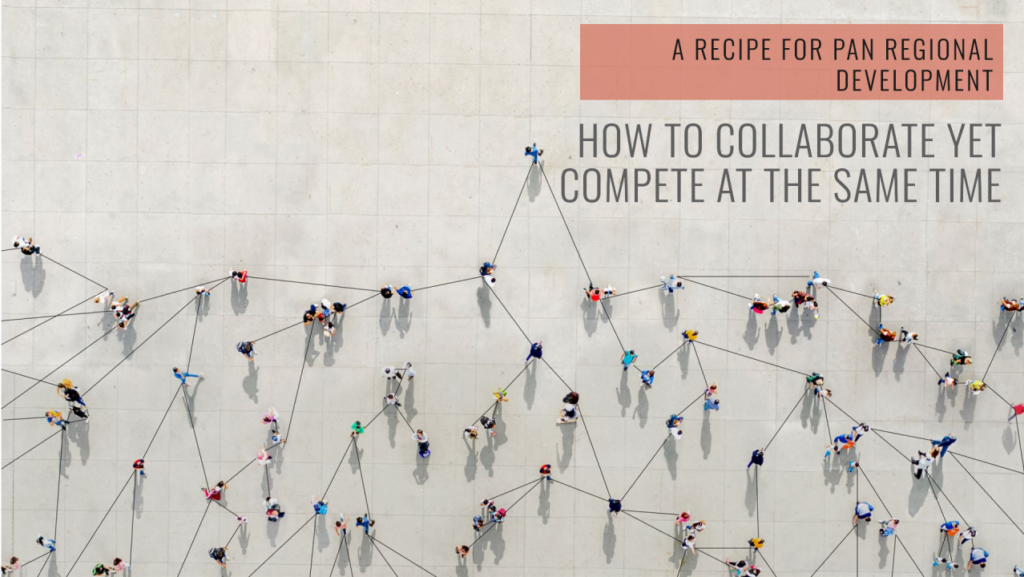
GCC ministers at the Arabian Travel Market 2024 GCC Summit stressed the need to balance competition and collaboration to support and further develop tourism in the region.

As projections paint a promising picture of inter-regional travel, particularly among Gen X travellers, there is a fertile opportunity for lucrative cross-border partnerships and mutual growth.
The panel discussion moderated by Dubai Eye presenter, Richard Dean, included H.E. Fahd Hamidaddin, CEO of the Saudi Tourism Authority; H.E. Khalid Jasim Al Midfa, Chairman of the Sharjah Commerce and Tourism Development Authority; H.E. Sarah Buhijji, CEO of the Bahrain Tourism & Exhibitions Authority; and H.E. Azzan Al Busaidi, Undersecretary of Tourism at the Ministry of Heritage and Tourism – Sultanate of Oman.
We’ve summarised the key points you need to know:
1.Aligning mega-event calendars

During the discussion, H.E. Khalid Jasim Al Midfa, Chairman of the Sharjah Commerce and Tourism Development Authority, championed the notion of aligning mega-event calendars, emphasising the benefits of preventing event overlap and enabling travellers to seamlessly integrate multiple experiences into their itineraries.
The call for collaboration extended beyond sporting events with panellists acknowledging the economic significance of synchronised concert dates for touring artists like the Taylor Swifts of the world and the broader entertainment industry. It was highlighted that collaborating on pan-regional concert dates would also ensure economic viability and success for touring artists.
2. Developing joint or complementary products

On the importance of industry collaboration in developing joint or complementary products, inclusivity emerged as a central theme with a focus on catering to a diverse range of visitor types and importantly budget levels.
As an example, Bahrain’s investments in new terminals, convention and exhibition facilities, and upgrading the airport and Al Dana Amphitheatre underscored the government’s role in providing platforms for industry innovation, particularly in supporting MICE (Meetings, Incentives, Conferences, and Exhibitions) and events.
3. Innovative experiences

Innovation took centre stage as industry leaders discussed the quest for unforgettable experiences. The idea of “Desert Cruises” was introduced as the discussion turned to the transformative potential of regional rail connectivity.
As the region aims to connect via rail, it will introduce point-to-point products that could take the form of themed experiences or transition the cruise experience onto the tracks. The emphasis was on pushing boundaries and redefining traditional tourism offerings. Oman’s commitment to cultural tourism and culinary arts also highlighted the importance of heritage in crafting authentic and immersive visitor experiences.
4. Joint marketing campaigns
Joint marketing campaigns in international markets were hailed as a potent tool for destination promotion. While acknowledging the benefits for all destinations involved, panellists also grappled with the challenges of expense and time associated with such endeavours. H.E. Azzan Al Busaidi, Undersecretary of Tourism at the Ministry of Heritage and Tourism in Oman raised the significance of word-of-mouth and firsthand experiences in shaping destination perceptions, highlighting traveller reviews’ dual role in influencing destination appeal.
5. Improving accessibility through the GCC Unified Tourism Visa

With the aim of streamlining travel in the region, a single pan-regional visa would give international travellers access to all six Gulf nations comprising the UAE, Kuwait, Bahrain, Oman, Saudi Arabia and Qatar.
Panellists agreed on the significance of expediency in implementing the Unified Visa, slated to be operational by year-end. The planned visa has emerged as a catalyst for presenting the GCC as a connected destination poised to enhance metrics such as length of stay, average spending, and employment opportunities.
Speaking on the success of the GCC summit, ATM Exhibition Director ME, Danielle Curtis, said, “While it’s clear that healthy competition will continue to play an important role in strengthening the GCC’s world-class tourism offering, it was also encouraging to hear how collaboration is enabling the region to become more than the sum of its parts in terms of attracting global travellers. We are immensely grateful to this year’s ministerial participants, who provided a diverse range of valuable insights into the region’s unified tourism future.”
Parting words

When asked his advice for the industry, H.E. Fahd Hamidaddin CEO of the Saudi Tourism Authority closed the session with this recommendation, “Keep your heads up, be bullish, be demanding and the destinations will continue to delight”.


